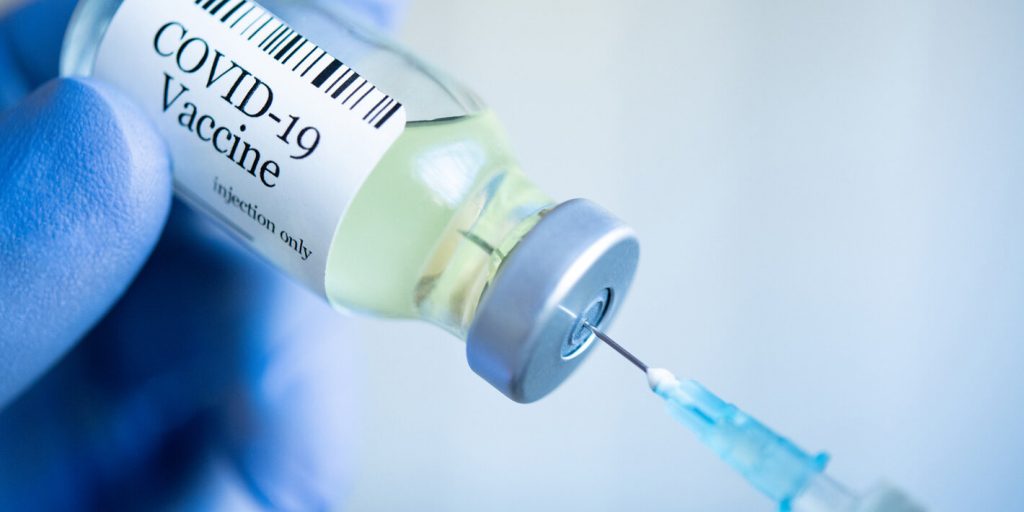New Delhi: The Centre Thursday told the Supreme Court that 77 lakh persons, without any valid Identity cards, have been administered the first dose and 14.55 lakh have been administered both the doses of COVID-19 vaccine.
However, a bench of Justices DY Chandrachud, Surya Kant, and Vikram Nath said that the Centre’s affidavit says that only 4.82 lakh people, without any ID card, have been vaccinated.
“Your affidavit says that only 4, 82, 000 people have been vaccinated without any identity cards. Is this not a very small number,?” the bench told Additional Solicitor General Aishwarya Bhati, appearing for Centre.
The law officer said that the affidavit was filed last August and she has updated figures according to which, “77 lakh persons without ID cards have been given the first dose and 14.55 lakh have been given both the doses”.
The bench then asked Bhati to put the updated figure on the affidavit and queried as to why the Delhi government has not filed any affidavit in the matter.
She said that notice was issued in July last year but still counsel for GNCTD has not appeared and filed the affidavit.
She said that an affidavit by the Delhi government would present a clearer picture to the court.
At the outset, the ASG pointed out that notice was issued by the bench in July last year, and thereafter prayers were amended in the petition.
The bench noted that no counter affidavit has been filed by the government of NCT in response to the petition and directed that the standing counsel should ensure that the affidavit is filed within three weeks.
It posted the matter for further hearing after three weeks.
July 27, last year, the top court had made it clear that it will not take an “elitist view” that no beggars be allowed on the streets and asked the Centre and Delhi government to respond to a plea seeking vaccination of beggars and vagabonds in view of the COVID-19 pandemic.
The apex court, which had observed that a large number of people including children are compelled to be on the streets to beg due to the absence of education and employment, said this is a “socio-economic issue”.
It had told the counsel appearing for the petitioner Kush Kalra that it would not consider one part of the prayer which sought a direction to the authorities to restrain beggars and vagabonds from begging on traffic junctions, markets, and public places to avoid the spread of COVID-19 pandemic in all the states and Union Territories (UTs) across India.
It had said that the court would issue notices to the Centre and Delhi government seeking their responses on the plea for direction to the authorities for rehabilitation of beggars and to ensure that food, shelter, and basic medical amenities including COVID-19 vaccination are provided to them amid the pandemic.
“As the Supreme Court, we would not want to take an elitist view that no beggars should be there on the streets,” the top court had said during the hearing.
While referring to a part of the prayer made in the plea, the top court had said it is seeking to restrain people from begging on the streets.
“This is a socio-economic problem of poverty. The idea is to rehabilitate them, give them and their children education,” it had said, adding that such people have no choice and nobody wants to beg.
The top court had said it is a “wider issue” of social welfare policy of the government and the apex court cannot say that such persons should be kept away from our eyes.
“This is a socio-economic issue and cannot be remedied by a direction of nature that is sought in prayer (a). This is a human problem which has to be redressed by the welfare state in a manner which accords with Part III and IV of the Constitution,” the top court had said in its order passed last year.
The counsel appearing for Kalra had said the object and purport of the prayer is to seek a direction to the authorities for rehabilitation of those who are compelled to be on the streets to eke out their livelihood by pursuing avocations such as begging.
The counsel, while referring to the pandemic, said there is an urgent need to ensure that the vaccination programme includes them like all other citizens as they don’t even have proper identity cards.
“Since the first part of prayer (a) is not pressed before this court, we are inclined to issue notice,” the top court had said, adding that the petitioner shall amend the prayer accordingly.
It had asked Solicitor General Tushar Mehta to assist it in the matter.
“Since the immediate issue which needs to be attended is that of vaccinating the persons to whom the petition relates and to ensure the due provision of medical facilities in the COVID-19 pandemic, we would expect a response from the Union of India and the Government of National Capital Territory of Delhi on what steps are being taken to deal with this human concern,” it had said.
PTI
